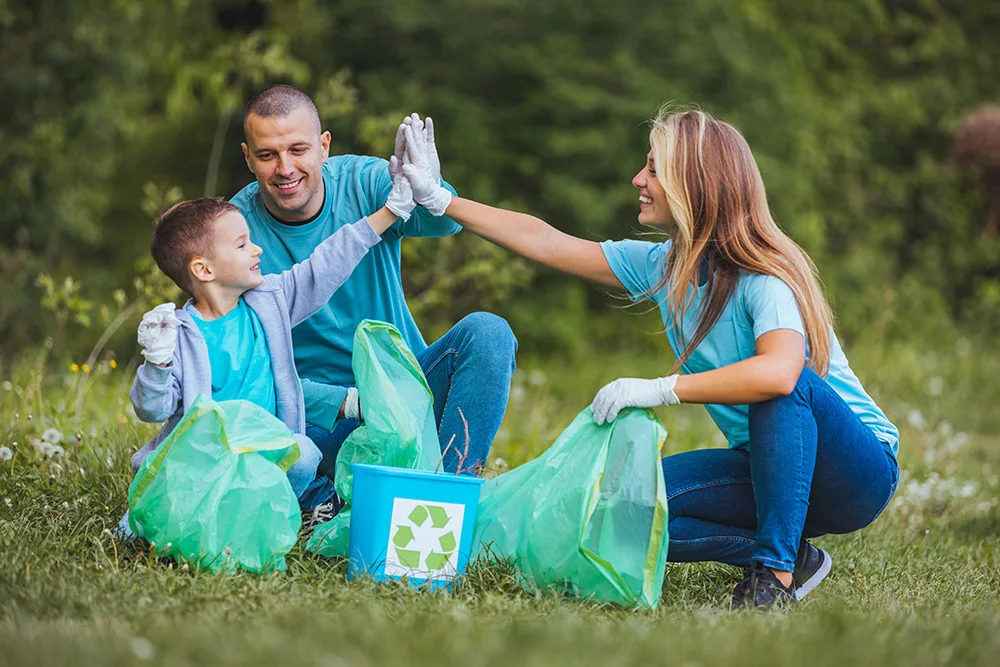Encouraging kindness in kids is essential for their overall development. Teaching them to be helpers and acknowledging kindness can set a positive example.
By promoting gratitude and kindness through exercises and discussions, children can learn the value of being kind to others and the joy it brings. Furthermore, modeling kindness, celebrating kindness week, and creating opportunities for acts of kindness can all contribute to fostering a kind-hearted environment for children.
It’s vital to instill these values from an early age, as kindness is a fundamental building block for a compassionate and harmonious society.
Table of Contents
ToggleThe Power Of Kindness
Kindness is a powerful force that can transform relationships, communities, and the world. When children learn the value of kindness, they develop empathy, compassion, and a sense of responsibility towards others. Encouraging kindness in kids can have a lasting impact on their social and emotional well-being, as well as on the people around them.
What Is Kindness?
Kindness is the act of showing empathy, compassion, and understanding towards others. It involves being considerate, helpful, and respectful in the way we treat people. Kindness is about spreading positivity and making a positive difference in someone else’s life.
The Difference Between Being Cool And Kind
Being cool often revolves around popularity, trends, and social status, whereas kindness is about genuine care, empathy, and moral integrity. While being cool may have temporary appeal, kindness has a lasting and meaningful impact on both the giver and the recipient. Teaching children the distinction between the two can help them prioritize kindness over superficial social validation.
Defining Kindness In The Negative
Kindness can also be defined by examining the absence of negative behaviors such as bullying, selfishness, and indifference. By teaching children what unkind actions look like, they can better understand and appreciate the importance of kind behavior. It’s crucial to help kids recognize that kindness is not only about what we do, but also about what we refrain from doing to hurt others.
Teaching Kindness To Kids
Teaching kindness to kids is a crucial aspect of their development. Instilling values of compassion, empathy, and helping others from a young age can shape them into considerate individuals. As adults, it is our responsibility to set an example and guide them on the path of kindness. By incorporating small, yet impactful practices in their daily lives, we can nurture a culture of kindness in our children that transcends into their interactions with others.
Be An Example Of Kindness
Children often learn by observing the behavior of their parents and role models. It’s essential to demonstrate acts of kindness in front of them, whether it’s helping a neighbor, showing empathy, or expressing gratitude. By witnessing these actions, children internalize the importance of kindness and are more likely to emulate them in their own lives.
Acknowledge And Model Kindness
Encouraging children to acknowledge acts of kindness in their surroundings helps them understand the positive impact it has on individuals and communities. Similarly, modeling kindness in our interactions with others provides a tangible example for children to follow. Whether it’s simple gestures like holding the door open for someone or helping a friend in need, showcasing these behaviors fosters a culture of kindness.
Teach Them To Be Helpers
Empowering children to be helpers reinforces the notion that everyone can make a difference. From assisting with chores at home to participating in community service projects, teaching them the value of lending a hand instills a sense of responsibility and consideration for others. By actively engaging in helping others, children learn that even small acts of kindness can have a significant impact.
Developing Empathy And Generosity
Teach your children the joys of helping others and be an example by helping strangers, friends, and family. Let them know that it feels good to help others, even if there’s nothing in return. Encourage small acts of kindness and create opportunities for your family to help others.
Discuss Gratitude
Teaching children about gratitude is essential to developing empathy and generosity. Start by discussing with them the importance of being grateful for the things they have, such as a loving family, a safe home, and good food to eat. Encourage them to express gratitude by saying “thank you” when someone does something nice for them or gives them a gift.
Find Kindness In Stories
Another effective way to develop empathy and generosity in kids is by exposing them to stories that showcase acts of kindness. Choose books or movies that highlight characters who demonstrate compassion, empathy, and generosity towards others. Encourage your children to identify the kind actions or gestures in these stories and discuss how they can apply those qualities in their own lives.
Exercise Gratitude And Kindness
Teaching children to exercise gratitude and kindness goes beyond just talking about it. Create opportunities for them to practice these values in their daily lives. For example, involve your children in volunteering activities, such as helping at a local shelter, donating items to those in need, or participating in community service projects.
Emphasizes the importance of small acts of kindness. Encourage your children to perform simple acts of kindness, like holding the door open for someone, helping a classmate with their work, or sharing toys with others. Teach them that even these small acts can have a big impact on someone’s day.
By discussing gratitude, finding kindness in stories, and actively exercising gratitude and kindness, you can foster a sense of empathy and generosity in your children. Helping them develop these qualities will not only benefit their personal growth but will also contribute to creating a kinder and more compassionate society.

Credit: biglifejournal.com
Engaging Kids In Acts Of Kindness
Teaching children the power of kindness involves modeling kindness, discussing gratitude, and finding kindness in stories. Show them the joy of helping others, emphasizing that even small acts of kindness go a long way. Creating opportunities for your family to help others can instill the value of kindness in kids.
Get Involved
– Be a role model for kindness to inspire your children.
– Encourage helping others without expecting anything in return.
– Engage as a family in acts of kindness in your community.
Teaching Children Values
– Demonstrate kindness and empathy in your actions.
– Intentionally teach empathy and kindness to children.
– Make kindness part of everyday conversations and activities.
Kindness Books For Kids
– “How to Be Kind in Kindergarten”
– “What Does It Mean to Be Kind?”
– “Each Kindness”
– “Be Kind”
– “I Walk with Vanessa: A Picture Book”
– “Kindness Makes Us Strong”
Encouraging Kindness As A Habit
Focus on how it feels to be kind
Encouraging kindness as a habit in children is essential for fostering a compassionate society. By instilling the value of kindness early on, children learn the importance of empathy and altruism.
- Model acts of kindness daily
- Encourage helping others without expecting anything in return
- Teach the significance of gratitude and generosity
Kindness is the act of showing compassion, empathy, and goodwill towards others. It involves selflessly helping those in need and spreading positivity through small gestures.
Focus on how it feels to be kind
- Experience joy and fulfillment from making others happy
- Build strong and meaningful relationships
- Elicit a sense of gratitude and contentment
Credit: www.northernhighlands.org

Credit: www.cmosc.org
Frequently Asked Questions On Encourage Kindness In Kids
How Do You Encourage Kids To Be Kind?
To encourage kids to be kind, be an example, acknowledge their kindness, and model it. Teach them to be helpers, discuss gratitude, and find kindness in stories. Exercise gratitude and kindness, and get involved in opportunities to help others as a family.
Model kindness and emphasize friendship.
How Do You Teach Children Acts Of Kindness?
Teach children acts of kindness by being their role model, acknowledging and praising their acts of kindness, teaching them to be helpers, discussing gratitude, finding kindness in stories, and getting involved as a family.
How Do You Raise A Kind Hearted Child?
To raise a kind-hearted child, lead by example, acknowledge and model kindness, teach them to be helpers, discuss gratitude, and find kindness in stories.
How Can We Show Kindness For Kids?
Show kindness for kids by being a role model of kindness, acknowledging their good deeds, teaching them to help others, and discussing gratitude and kindness in stories. Additionally, exercise gratitude and kindness in your daily interactions, and get involved as a family in acts of kindness.
Conclusion
Teaching kindness to kids is essential in today’s world. By being a role model, acknowledging acts of kindness, and teaching them the value of gratitude, we can instill the importance of kindness in their hearts. It starts with teaching them to be helpers, showing kindness in stories, and exercising gratitude and kindness in their daily lives.
By getting involved as a family, we can create a force field of good that spreads kindness throughout the world. Let’s make kindness a priority and teach our children the power it holds.

Mother of Two children. I’m a former teacher with a background in child development and a passion for Good parenting. I understand child development and know how to develop activities to help children learn and grow. Spare time, I enjoy spending time with my family, reading, and volunteering in my community. Read More








